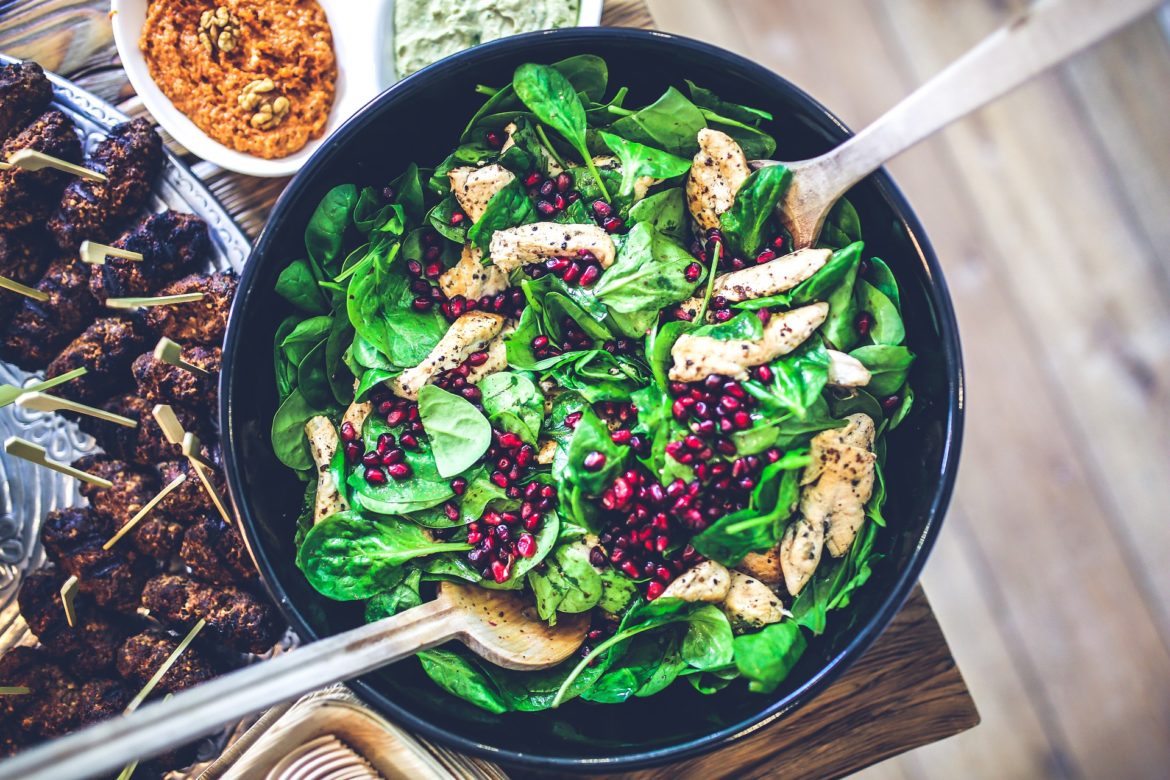Recently in class, we discussed the issue of pesticides on our agriculture. The large majority of our produce and grains are sprayed with a variety of pesticides, the most famous being glyphosate, the active ingredient in Roundup. If you think that livestock is spared of the scourge of pesticides, but alas they are not. Most livestock is fed GMO feed, mostly corn so we absorb pesticides in that manner as well. After explaining the litany of ways we are subjected to toxic pesticides, my students will posit the question, “Is it better to eat or not eat pesticide-laden produce?”
{Read our article on Clean Eating Guide to Eggs and Clean Eating Guide to Meat.}
Many of you are familiar with the consumer-rights organization, the Environmental Working Group (www.ewg.org). They are perhaps most famous for database which lists all the hundreds of products that contain Bisphenol A, as well as their cosmetic app. The latter is very handy, especially for women, since you are able to search your beauty products to see if it contains any toxic ingredients.
What brought them the most attention is their annual publication of the “Dirty Dozen” and “The Clean Fifteen.” Each year they publish the 12 most pesticide-laden produce and the 15 least pesticide-laden produce. For 2017, the “Dirty Dozen” are as follows:
- Apples
- Grapes
- Peaches
- Pears
- Nectarines
- Bell Peppers
- Spinach
- Celery
- Potatoes
- Tomatoes
- Strawberries
- Cherries
As a whole the list doesn’t change too much. (In most years, blueberries and/or raspberries as well as kale are listed.) If you would like more information on how to limit exposure to pesticides, read our article entitled “The Dirty Dozen.” or listen to the NPE Radio episode on it.)
The Shopper’s Quandary
Upon learning about which vegetables absorb the most pesticides in their flesh, the students’ inevitably ask the same question each year. “Organic produce is too expensive.” My typical retort is three-fold.
- “You don’t feel that way when you buy your daily tacos, Starbucks or fast food.” Re-allocate your money wisely.
- “Prevention is infinitely cheaper than treatment of disease.” Though organic items are indeed pricey, in the long run, if they reduce your chances of getting cancer, than it is worth the price. Treatment for cancer and cardiovascular ailments are pricey and the these diseases may debilitate you to the point where you cannot work.
- “Remember this information when you are adult when you will be able to make your own purchases and control what foods enters your family’s mouth.”
Inevitably the other question I receive is “Is it better to avoid the Dirty Dozen produce?” This question required deep introspection and rumination. Look at the list? The central point of this question could be boiled down to “Would our diet benefit from not eating cruciferous vegetables, berries, cherries, and alike?”
Though potatoes are not the most-nutrient dense vegetables (though they are the #1 vegetable eaten in the U.S.), the former are very nutrient dense. Cruciferous veggies and berries are chock full of great things: from polyphenols packed with loads of micronutrients and anti-oxidants to a phenomenal source of fiber. (Read our article on 4 Superfoods You Should Be Eating Right Now.)
But do the toxic effect of glyphosate, Aldrin, and other pesticides supersede the benefits of the whopping phytonutrients in produce? Some of the most common side-effects of exposure to pesticides include:
- Reproductive Damage
- Infertility
- Hormonal Disruption
- Neurological Damage
- Cancer
- Birth Defects
- Developmental Delays
If you consider how pretty much every grain, produce, and meat we consume boasts pesticides in some form or another, our bodies are constantly attacked by them.
Final Verdict
So upon deliberation, the typical answer I give the kids is as follows.
“Make a concerted effort to reallocate your money so you may purchase your favorite Dirty Dozen produce organically. If you can’t do so and/or your parents simply don’t have the money to do so, then continue to their these items in their conventional form.”
Look, the phytonutrient benefits of these fruits and vegetables outweigh the toxic effect of the pesticide. Moreover, though are immune system and liver are subjected to a barrage of toxins (i.e. BPA, VOCs, PFOAs, PCBs, et al) the human body is highly resilient and able to withstand this assault. Not to mention by consuming these superfoods, even in their conventional form, you are strengthening your body even more to withstand the pernicious effects of these pesticides.
In closing, I would give you the same advice I gave the kids. Make an orchestrated effort to buy these 12 organic. Do whatever it takes…but if you can’t continue to eat them. Wash them very well to remove Alar (and other chemicals added to produce to make them shiny) as well as pathogenic bacteria such as E-Coli and Listeria but eat them nonetheless.
We would love to hear from you below? What do you think? Pesticide-laden produce: eat or not to it? Post a comment below.
Subscribe and review NPE Radio to get more tips on clean eating, weight loss maintenance, food toxin avoidance tips and much more!!



2 comments
Very rapidly this web site will be famous amid all blogging and site-building viewers, due to it’s nice articles or reviews
It’s truly very complicated in this full of activity life
to listen news on TV, thus I just use world wide web for
that reason, and take the most recent information.